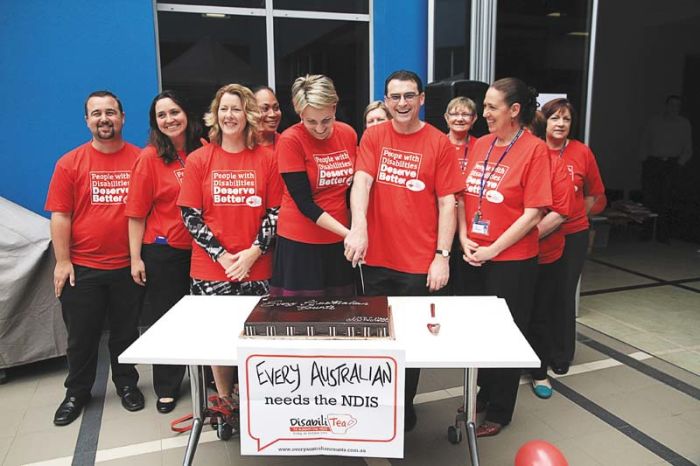Federal Minister for Health, Tanya Plibersek, cut the cake at the DisabiliTEA morning tea in Waterloo. She was well aware of the community concern over the state of disability services, which are critical to the lives of many families. One of the key issues in relation to care for people with disabilities is the impact on whole families. It is often far greater than that experienced by a family that includes someone who is ill in the general sense.
Parents of a child with a disability have little option but to hand over most of their lives to that child, or pay for someone else to do so. Siblings of the child are often impacted in numerous ways, as they grow up in a different environment from their peers.
What many of us don’t realise is that nurses who care for people with disabilities in government facilities are paid 6 to 15 per cent less than public hospital colleagues and therefore it is difficult to recruit people into this work. There is a petition now circulating to the NSW government requesting that this injustice be ended.
In fact, nurses who work in the disability area are very much specialist nurses. They are required to have a number of core skills, including general nursing, behavioural management, medical expertise, methods of training people and special ways of communicating. Each person with a disability is likely to have different needs. Disability nurses are required to have depths of relationship with their clients that would not apply in most other areas of nursing, and wide-ranging responsibilities for people, many of whom need 24-hour care.
It is hoped that the community at large will recognise all these issues, give clear support for dealing with them and affirm the work of nurses who are desperately needed by vulnerable people and their families.






